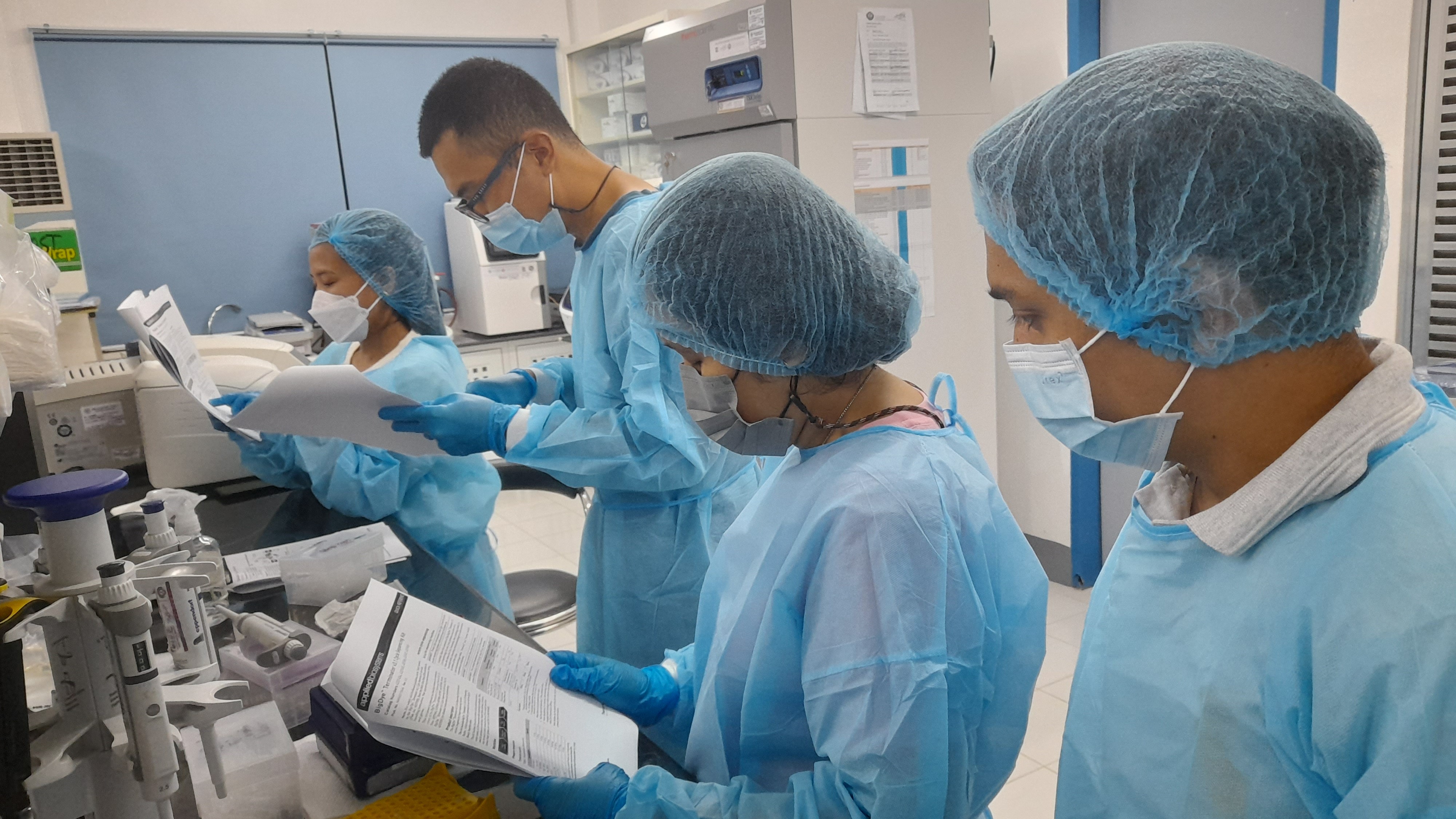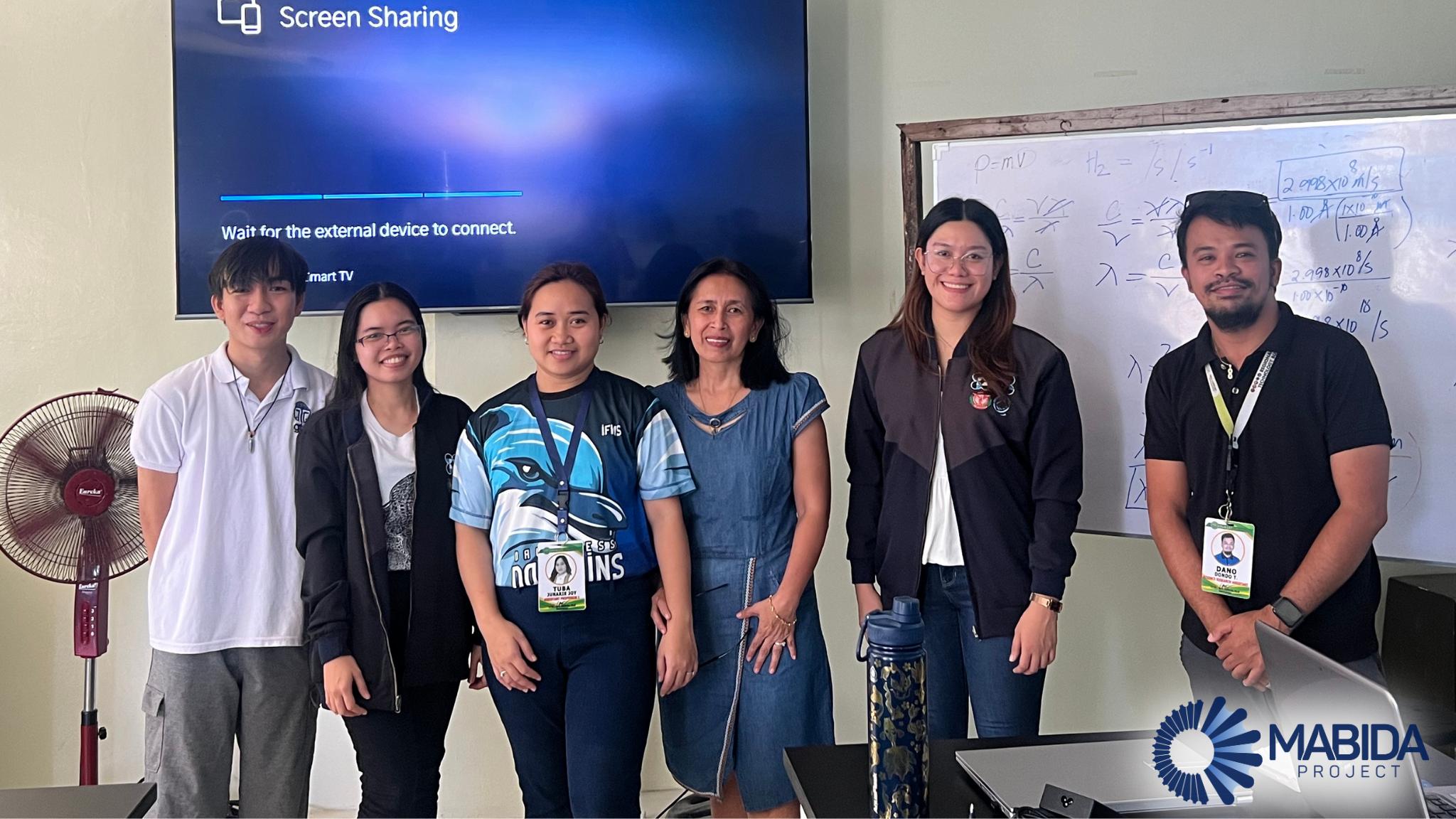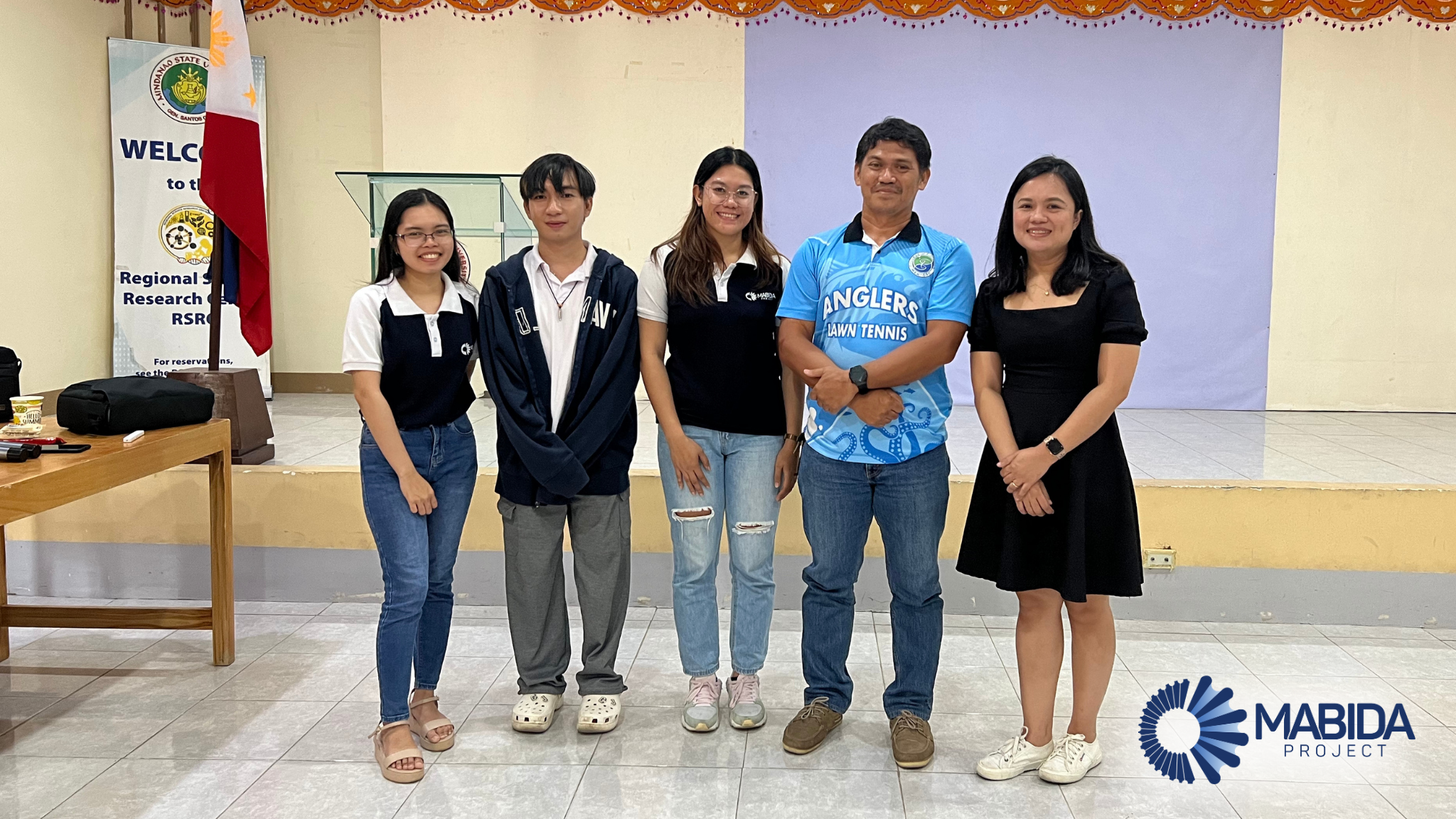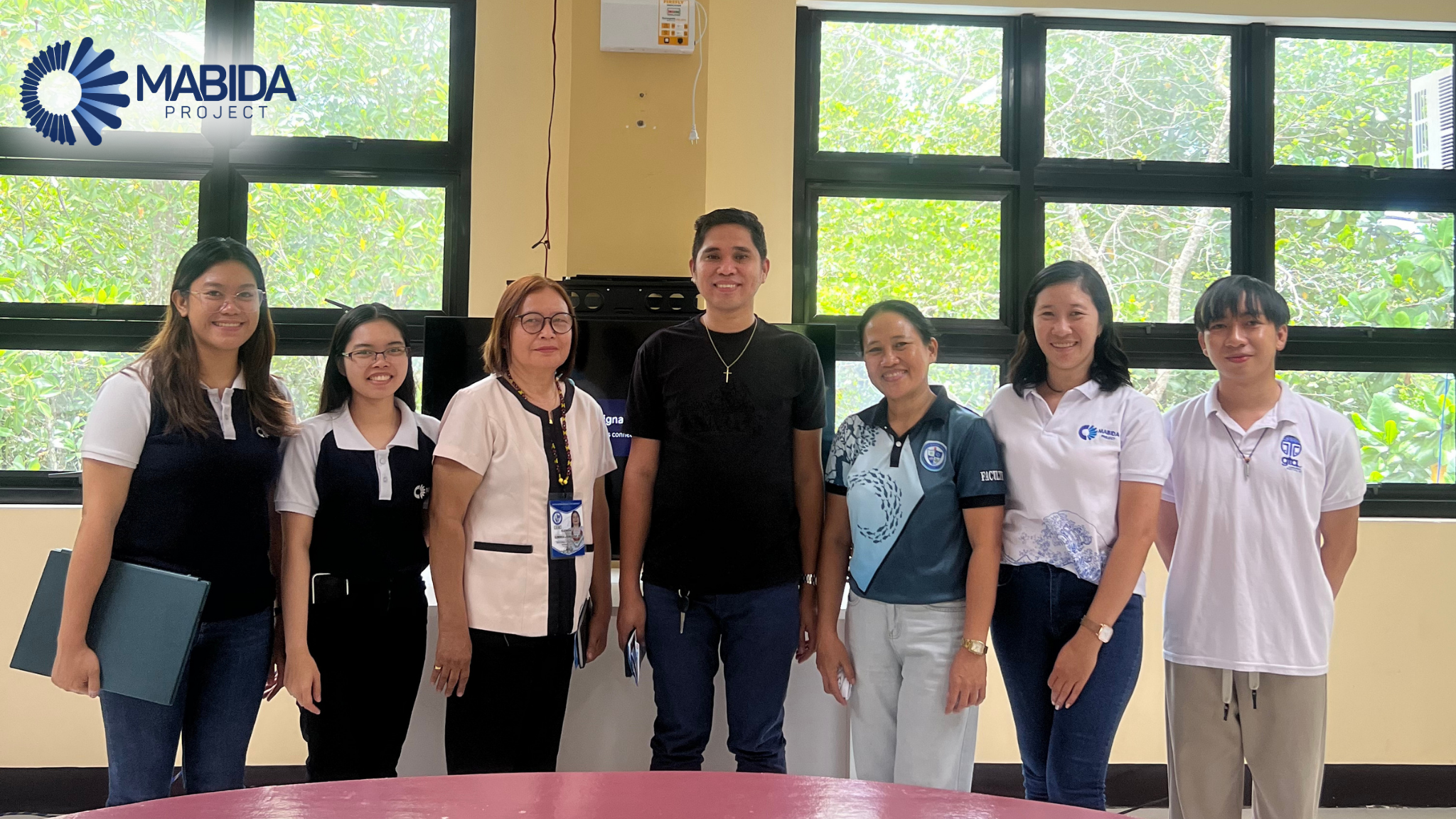
Photo taken by Joan Acaso and Jose Amor Oño
Hands-on Training on Capillary Sequencing with PGC Mindanao
Written by Maybelle A. Fortaleza
Uploaded on Nov. 18, 2022
Two researchers of CRREST Laboratory, Ms. Joemarie Lanutan and Mr. Kevin Labrador, underwent hands-on training on capillary sequencing conducted by the Philippine Genome Center Mindanao last 18 November 2022. The training introduced concepts and techniques that feed towards the DNA barcoding capabilities of CRREST. Services offered by PGC Mindanao and how these can be utilized by CRREST and its partners were also discussed.
The partnership between CRREST and PGC Mindanao was formalized through a Memorandum of Understanding through the FishDive Project of the DOST-funded ABRAHAM Program. Linked by common scientific interests to improve the state of omics research in Mindanao, both parties aim to cooperate and exchange ideas on the application of omics to study the marine biodiversity of the region.



